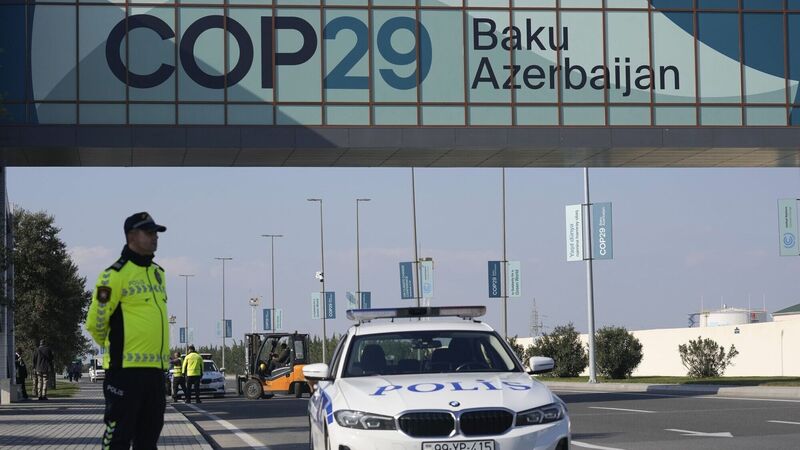How to decarbonise flying is Cop talking point

Security patrols outside the venue for the Cop29 UN Climate Summit n Baku, Azerbaijan. Picture: AP
To get from Ballincollig to Baku, where I’m attending Cop29 in Azerbaijan, I took two buses, two planes, a shuttle bus and I walked the last kilometre. The two buses burned diesel, but that could soon change as electric buses are currently being rolled out across Ireland.
Sustainable Aviation Fuels (SAF) could reduce aviation’s environmental impact, but currently contributes less than 1% to the sector’s global energy demand. How to decarbonise flying is one of the many difficult topics that will be discussed at this year’s Cop.
CLIMATE & SUSTAINABILITY HUB
















